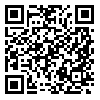Volume 12, Issue 59 (2024)
CFL 2024, 12(59): 67-105 |
Back to browse issues page
Download citation:
BibTeX | RIS | EndNote | Medlars | ProCite | Reference Manager | RefWorks
Send citation to:



BibTeX | RIS | EndNote | Medlars | ProCite | Reference Manager | RefWorks
Send citation to:
Mirkiaei M. The Media Function of Political and Social Folk Ballads in the Qajar Era, Pre-Constitutional Period. CFL 2024; 12 (59) :67-105
URL: http://cfl.modares.ac.ir/article-11-74766-en.html
URL: http://cfl.modares.ac.ir/article-11-74766-en.html
Associate Professor, Department of History, Allameh Tabataba’i University, Tehran, Iran. , mehdimirkiaei@atu.ac.ir
Abstract: (822 Views)
Research in different fields of political culture of subordinates in the history of Iran is very important. The ruling groups, in their narrative of the current situation, always claimed the prosperity of the country and the satisfaction of the subjects. The public should have challenged this narrative and shared their narrative with their equals. But this action required a media, a media that is immune from the supervision of the lord of power. What the masses of the people had at their disposal were various forms of popular culture. How the masses use these formats and choose some of them as a tool for informing is a point worthy of attention that should be investigated. Accordingly, this study aims to investigate the pre-constitutional period in the Qajar era, analyzing how folk ballads found media capability, and how the ballad media found political function in the face of the common people with the ruling elites. Our assumption is that the melodiousness of the folk songs and ballads, their short meters, the humor and the simplicity of the interpretations and descriptions, facilitated their memorization and encouraged the audience to transmit them, and the speed of their publication was also increased. On the other hand, the oral nature of this media allowed the speaker to see feedback and reactions. Audiences could also make their own changes in expressions or themes, which would, thus, become an interactive medium. In subordinate's political activism, folk songs and ballads escaped censorship due to their oral nature, and spread the information that subordinates disseminated through their media and strengthened horizontal links between the masses. This gave media the possibility of changing and manipulating the themes and expressions of the democratic facet ballad. The medium of folk songs and ballads had the function of granting social status and consolidating social norms like any other media that subordinates used against dominant groups.
Article Type: پژوهشی اصیل |
Subject:
Popular literature
Received: 2024/04/20 | Accepted: 2024/08/15 | Published: 2024/11/21
Received: 2024/04/20 | Accepted: 2024/08/15 | Published: 2024/11/21
Send email to the article author
| Rights and permissions | |
 |
This work is licensed under a Creative Commons Attribution-NonCommercial 4.0 International License. |








